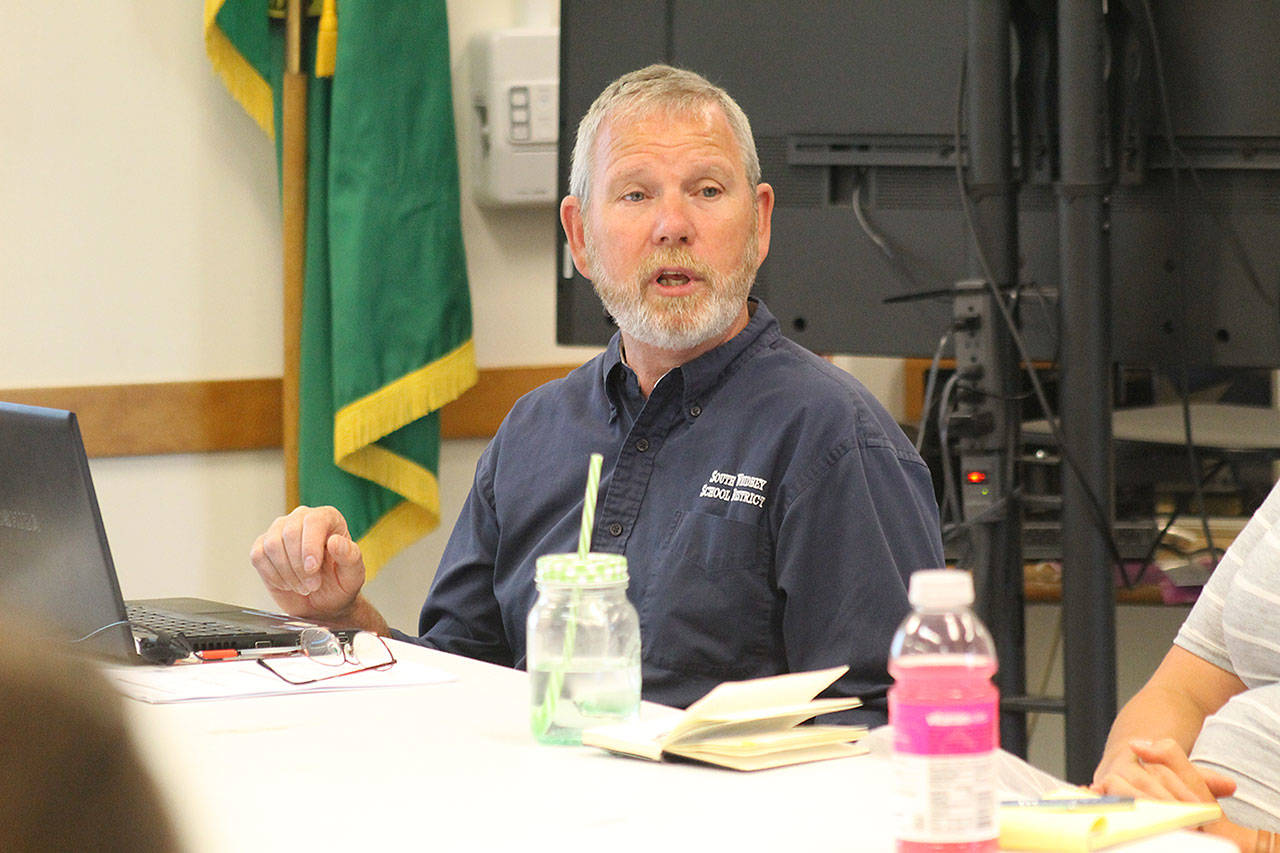A $20.74 million budget for the 2017-18 school year will be discussed and likely adopted by the South Whidbey School Board at a 6:30 p.m. meeting on July 26 at South Whidbey Elementary School.
The proposed budget’s general fund is up by about $1 million due to increases in teacher salaries and benefits, according to district Assistant Superintendent of Business Dan Poolman. Poolman said the budget for the upcoming school year is “pretty much status quo,” despite lawmakers approving major changes in state education funding on June 30, which includes statewide property tax increases beginning in 2018.
For now, the funding model is the same as it has been in previous years, but Poolman expects that to change for the 2018-19 school year.
As it has in the past, personnel costs make up 85 percent of the district’s budget — about $15 million. The district is also compensating for cost of living adjustments and increases in retirement rates, health care, K-3 class size funding and highly capable funding. Enrollment in the district remains on a decline and is expected to drop by 1.8 percent; in the past three years, enrollment has declined by 7 percent (98 students). Fewer students means less money from the state, which bases funding allocations to districts based on enrollment. The rate per full-time student in basic education is $7,249.24 and $7,246.68 for special education.
The capital projects fund is projected at $2.45 million, down by about $350,000 from 2016-17. The associated student body’s budget is $211,250.
Total expenditures for the district’s general fund is $17.7 million.
Wednesday’s night meeting will include a hearing and adoption by the board. The budget is due to the state by Aug. 1.
The goal for the statewide property taxes is to fully fund basic education at the state level and steer districts away from having to implement local levies to pay for maintenance and operations, according to Lisa Dawn-Fisher and TJ Kelley of the Office of Superintendent of Public Instruction. An 80-cent property tax increase to $2.70 per $1,000 of assessed value is expected to draw $1.6 billion over the next two years, which is earmarked for education.
Dawn-Fisher, the state agency’s chief financial officer, said a tax analysis is being put together by the state’s Department of Revenue to show homeowners who will be affected by the property tax increase.
Under the new plan, the state will cover teacher salaries, benefits, classroom supplies and other amenities under the umbrella of the state’s definition of “basic education,” Poolman said. But, it won’t have an immediate impact.
“This is a phase in of about four years,” Poolman said. “This is not going to happen overnight and nothing is going to happen until a year from now anyways.”
The state budget passed on June 30 capped the maximum amount that local “enrichment” levies can collect at $1.50 per $1,000 of assessed value, or $2,500 per student beginning in 2019, whichever is lower.
Once the transition is complete, the district’s applicable enrichment levy will remain, but cover expenses not included in the state’s levy. According to Dawn-Fisher, that could be athletics or other additional programming. A district could also rely on an enrichment levy to help reduce class sizes, she said.



